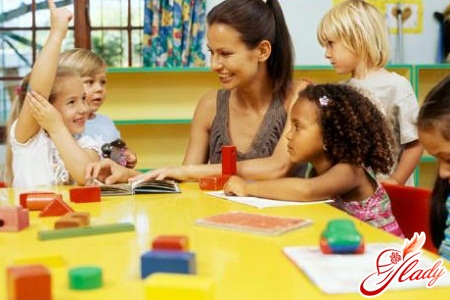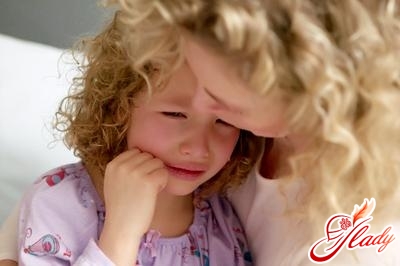 Children and drugs.... This is one of the most terrible phenomena in modern society. As the statistics show, it is with drugs that a huge number of misfortunes are connected - deaths and crimes. As you know, drug addiction is a real disease. And like any illness, drug addiction must be treated as early as possible. It is teenagers who begin to take drugs most often, so any parent should be well aware of what are the signs of addiction in adolescents. And even in the event that your child grows absolutely silent and problem-free child, do not lose sight of this information. After all, if the trouble touches your family, and you do not notice it in time, you will blame yourself for not having noticed the problem in a timely manner. Yes, and addiction in neglected form is treated much harder than at the initial stage. Unfortunately, now the mass media are full of a lot of absolutely unreliable information, which not only does not help parents, but also often confuses parents. This article contains only reliable first signs of drug addiction and facts about the impact of drugs on the child's body. The question of how to save children from drugs should worry not only parents but also the school. Parents should be sure to find out whether the school is combating drugs - talks, lectures on this topic. In the event that the school does not explain to children about the dangers of drugs, be sure to tell the child about it themselves. Very often a picturesque description of how drugs affect the body is enough to permanently discourage a teenager from trying them. However, remember that the conversation should be timely. It is very widespread misconception that drug addiction is the lot of children from disadvantaged, unsecured families financially. To the great regret, neither parental love and affection, nor full material prosperity can not serve as a guarantee that the child will never be interested and will not try drugs. Remember that your opponent is the strongest structure of the drug business, which is interested in making drugs buy as many people as possible. And the more provided the teenager, the more expensive drug he is able to buy. Thus, children from wealthy families are often more desirable prey for drug traffickers. That is why the question of how to protect children from drugs should be in the first place with parents. Remember that addiction can develop in different ways - someone it develops in a month, someone - in six months. However, never a true drug addiction occurs after one or two drugs. That is why it is so important to notice the first alarming calls in time and to start taking emergency measures in time. The most important thing that parents should pay attention to is the behavior of their child. There are a lot of different symptoms, in one way or another testifies to the presence of drug addiction, however, often, it is very difficult for inexperienced parents to understand what kind of phenomenon they encountered. But nevertheless, there are three main signs of changing the behavior of the child, which is quite reliable evidence of the problem with drugs:
Children and drugs.... This is one of the most terrible phenomena in modern society. As the statistics show, it is with drugs that a huge number of misfortunes are connected - deaths and crimes. As you know, drug addiction is a real disease. And like any illness, drug addiction must be treated as early as possible. It is teenagers who begin to take drugs most often, so any parent should be well aware of what are the signs of addiction in adolescents. And even in the event that your child grows absolutely silent and problem-free child, do not lose sight of this information. After all, if the trouble touches your family, and you do not notice it in time, you will blame yourself for not having noticed the problem in a timely manner. Yes, and addiction in neglected form is treated much harder than at the initial stage. Unfortunately, now the mass media are full of a lot of absolutely unreliable information, which not only does not help parents, but also often confuses parents. This article contains only reliable first signs of drug addiction and facts about the impact of drugs on the child's body. The question of how to save children from drugs should worry not only parents but also the school. Parents should be sure to find out whether the school is combating drugs - talks, lectures on this topic. In the event that the school does not explain to children about the dangers of drugs, be sure to tell the child about it themselves. Very often a picturesque description of how drugs affect the body is enough to permanently discourage a teenager from trying them. However, remember that the conversation should be timely. It is very widespread misconception that drug addiction is the lot of children from disadvantaged, unsecured families financially. To the great regret, neither parental love and affection, nor full material prosperity can not serve as a guarantee that the child will never be interested and will not try drugs. Remember that your opponent is the strongest structure of the drug business, which is interested in making drugs buy as many people as possible. And the more provided the teenager, the more expensive drug he is able to buy. Thus, children from wealthy families are often more desirable prey for drug traffickers. That is why the question of how to protect children from drugs should be in the first place with parents. Remember that addiction can develop in different ways - someone it develops in a month, someone - in six months. However, never a true drug addiction occurs after one or two drugs. That is why it is so important to notice the first alarming calls in time and to start taking emergency measures in time. The most important thing that parents should pay attention to is the behavior of their child. There are a lot of different symptoms, in one way or another testifies to the presence of drug addiction, however, often, it is very difficult for inexperienced parents to understand what kind of phenomenon they encountered. But nevertheless, there are three main signs of changing the behavior of the child, which is quite reliable evidence of the problem with drugs:
- The appearance of sharp and noexplanatory mood swings, which can not be explained by real events occurring with the child. From the side often mood swings look extremely strange way - a child can experience unrestrained fun, fountain with unrestrained energy and optimism, and after a few minutes fall into a state of apathy and complete indifference to everything that is happening around, and sometimes even fall into depression. However, in no case should you confuse these changes in mood with the natural emotional instability that is inherent in all children in transition. Changes in mood related to drug addiction are always causeless and have no basis.
- No less reliable and alarming sign of the fact,that the child began to take drugs - this is a violation of the rhythm of sleep familiar to the child. Often in the daytime the child is very lazy, his movements are slow, speech of a sleepy person. And by the evening the child starts to make enough energetic actions, can not sleep at night on flight, listening to music or sitting at the computer. The next day the situation repeats. In the event that your child is an owl by nature, the picture can be absolutely opposite - in the evening, when the child is usually active, he sleeps, and in the morning hours is active and cheerful.
- No less reliable indicator, if availabletwo of the above, is a sudden change in appetite, not related to the physiological characteristics of the adolescent and a sharp jump in growth. In a row, a child can almost completely give up food without feeling hungry at all. And then, suddenly, he just has a "wolfish" appetite - the child eats almost everything, not paying attention to their taste preferences, and portions increase at times. If your child came with a walk and with a pathological greed pounced on food, and this you notice more than once - you should be alert. Most often, such an increase in appetite comes after the withdrawal from the state of drug intoxication caused by the use of anasha. At first the child will not come home, being in a state of drug intoxication. This time he will wait outside the house, and return home exactly after leaving this state, at a time when the appetite increases.
So, now you know the three main featuresdrug addiction. However, in no case must we forget that all these symptoms can also occur in absolutely healthy children, in no way connected with taking drugs. In no case do not blame the child for anything if they are not completely sure themselves. Remember that the signs of drug addiction are not isolated cases, but are repeated systematically. If you have doubts, continue to observe the child for a while, since there are a number of signs that you can suspect of a child's addiction.
Additional signs that the child is taking drugs
 If you have doubts and you do not know,how to test a child for drugs, be sure to pay attention to his studies and social life. If your child has always been a good student and pride of his class, and now, for no apparent reason, his interest in studying has dried up, and unsatisfactory assessments have appeared - this is already a reason for parents to be on the alert. Be sure to talk with your child, try to find out what's bothering him. Even if the reason is not in drugs, your help and participation is very important for a teenager - he does not yet know how to manage his emotions to the full. In addition to lowering the school's progress, the child suddenly loses interest in the previously-loved classes. He can stop playing sports, or visit a once-beloved section, he refuses his favorite past classes - for example, hiking in the forest or the pool. He is almost completely stopped interested in his former friends, but new ones may appear. And the whole circle of communication can change just radically. In addition, the child almost completely ceases to be interested in the life of the family - does not take part in joint trips to shops, to rest. He stops participating in the discussion of joint plans for the future, begins to forget about previously significant events for him, such as memorable dates, birthdays of family members. Also, be sure to note which music your child listens to, but be sure to consider the previous musical preferences. But if your child always listened to ordinary music, and recently, without obvious reasons, was carried away by music, which music is difficult to describe, a set of monotonous rhythmic sounds is also an occasion to pay closer attention to the emotional state of the child. Child psychologists have proved that such music helps a teenager to completely abstract from the outside world and not think about his problems. The following number of reasons can not be a reliable sign, but often serves as an indirect sign of drug addiction in adolescents:
If you have doubts and you do not know,how to test a child for drugs, be sure to pay attention to his studies and social life. If your child has always been a good student and pride of his class, and now, for no apparent reason, his interest in studying has dried up, and unsatisfactory assessments have appeared - this is already a reason for parents to be on the alert. Be sure to talk with your child, try to find out what's bothering him. Even if the reason is not in drugs, your help and participation is very important for a teenager - he does not yet know how to manage his emotions to the full. In addition to lowering the school's progress, the child suddenly loses interest in the previously-loved classes. He can stop playing sports, or visit a once-beloved section, he refuses his favorite past classes - for example, hiking in the forest or the pool. He is almost completely stopped interested in his former friends, but new ones may appear. And the whole circle of communication can change just radically. In addition, the child almost completely ceases to be interested in the life of the family - does not take part in joint trips to shops, to rest. He stops participating in the discussion of joint plans for the future, begins to forget about previously significant events for him, such as memorable dates, birthdays of family members. Also, be sure to note which music your child listens to, but be sure to consider the previous musical preferences. But if your child always listened to ordinary music, and recently, without obvious reasons, was carried away by music, which music is difficult to describe, a set of monotonous rhythmic sounds is also an occasion to pay closer attention to the emotional state of the child. Child psychologists have proved that such music helps a teenager to completely abstract from the outside world and not think about his problems. The following number of reasons can not be a reliable sign, but often serves as an indirect sign of drug addiction in adolescents:
- Intolerance. And intolerance both to the people around him, and to himself. Those actions, which the teenager used to not pay any attention to, may start to cause him a sharp denial and rejection.
- Irrelevant irritability, which periodically occurs in adolescents.
- Girls who take drugs, very, very often, parents note a strong tearfulness and a tendency to hysterics.
- Ungrounded aggression in relation to both humans and animals.
- Even a single attempt at suicide, even if it does not bring any harm to the adolescent's health, should serve as a serious reason for the immediate recourse to a child psychologist for help.
A very revealing moment may beObservation of the change in the manner of speaking habitual for the child and his emotional reaction. Try to ask the child any simple question, the answer to which is obvious, and pay attention to how much time will pass between the question and the answer. If there is a noticeable pause, we can talk about the so-called communication delay, which indicates that the child does not immediately comprehend the information received. But in some cases, after the question, you get a whole stream of information that does not correspond to the question at hand, but you will not get an answer either, or you will receive with a long delay. The most popular question that, in order to test the child's reaction, is asked by psychologists - this is a simple question "What is your name?". If the child is not violated the ability to emotional contact, he immediately calls his name. And in the event that the problem still exists, there may be some delay in answering, or even asking me "Me?" All this indicates that the child does not interact emotionally with the interlocutor, but is immersed in his own experiences and feelings. Do not think that the child is doing this in order to annoy you. Often, he can subconsciously avoid emotional contact, knowing that you will not approve of his behavior. As mentioned above - a child can almost completely change the circle of friends - often this is one of the first signs of drug addiction. He also fundamentally changes his way of communicating on the phone. If earlier the child could spend hours chatting with friends on the phone, absolutely not burdened by your presence, now during the conversation he tries to go into the next room, and all his phrases became extremely laconic and dry - "yes, no, I will soon". You no longer know what and with whom your child communicates, where he goes and who he is with. When trying to figure this out, the child just clicks loudly at the door and tries to get away from the conversation. Attentive parents will certainly notice the changes in appearance that occur with their child. And these changes can be very different. For example, a child who used to watch his appearance very carefully can become sloppy and untidy. Or maybe, on the contrary, start paying too much attention to your clothes and hair. In some cases, the child almost completely and radically changes its image, giving preference to leather jackets, worn jeans, wide straps. All his appearance, the child as it were protesting against the world around him. In addition, parents should quietly monitor whether there is a reliable indication that the child is taking drugs. This sign is traces of injections on the hands and feet. If your child tries to avoid getting into your eyes without clothes with long sleeves, wearing it even in hot summer weather, this should alert you. However, do not forget that drugs can be injected into the body without injections, so the absence of their traces also can not guarantee that the child definitely does not use drugs. That's why parents should also pay attention to the color and size of their pupils - their change can also indicate problems of the child with drugs. Also, the appearance of the odor of acetone from the mouth can be guarded, but this may indicate many diseases of the internal organs of a person. In addition, pay attention to whether there were any foreign objects and substances in the house, the origin of which the child can not intelligibly explain to you. These can be syringes, boxes with green or white powder, acetone, solvent. Also, you have to sound the alarm in case you notice that the spoons in the house are smoky - all this may indicate that the child is making drugs at home. The appearance of the child's criminal behavior. Criminal is the behavior in which the child begins to appear asocial inclinations - theft, flight from home, drives to the police for committing minor offenses. You can start to notice that the child has large amounts of money, new things, phones and stuff. But often parents can mark the loss of valuable things and money from home. Be sure to control how much money is in your wallet and other public places, and what amount is available to your child. In no case should you not let this matter into its own right - you should be clear about all financial matters of your son or daughter. Another rather serious sign of drug addiction may be the child's reluctance to leave the familiar environment more than one to two days. A child can flatly refuse to go on vacation abroad, or for the summer to a beloved grandmother. This is because in an unfamiliar place, getting drugs will be much more difficult. However, do not blame the child, focusing only on this feature - it is possible that your child has the first love. But if there are other basic signs of drug addiction, parents should be alerted.
How to wean a child from drugs?
 If you are sure that your childtakes drugs, seek an answer to the question of how to protect children from drugs, it's too late for you. Now you need to learn how to disinfect children from drugs. In any case, you can not cope on your own without resorting to the help of professionals. This will only aggravate the situation, because if you do not begin to treat addiction in time, then it will be very, very difficult to get rid of the drug addiction. The first thing you have to do is speak frankly with the child. Be prepared for the fact that a conversation with children about drugs will be very difficult. Do not expect that at your first question your child will repent to you in everything. Most likely, with a direct question the child will deny everything and may even take a very aggressive position, which will only increase as your reproaches increase. Of course, talking about the dangers of drugs to children does not make much sense and is unlikely to make them stop using drugs. But even by hard bans and your aggressive behavior, you only aggravate the situation by pushing the child away from you. Of course, the game of friendship in this case is at least not appropriate, but nevertheless the child must feel your understanding and support. The next step that must be taken by parents, whose child takes drugs - is to seek help from a narcologist and a child psychologist. It can be specialists in the district clinic or narcological dispensary, or there may be specialized private clinics. However, wherever you turn for help, treatment of adolescent drug addiction is conducted according to a strictly defined scheme:
If you are sure that your childtakes drugs, seek an answer to the question of how to protect children from drugs, it's too late for you. Now you need to learn how to disinfect children from drugs. In any case, you can not cope on your own without resorting to the help of professionals. This will only aggravate the situation, because if you do not begin to treat addiction in time, then it will be very, very difficult to get rid of the drug addiction. The first thing you have to do is speak frankly with the child. Be prepared for the fact that a conversation with children about drugs will be very difficult. Do not expect that at your first question your child will repent to you in everything. Most likely, with a direct question the child will deny everything and may even take a very aggressive position, which will only increase as your reproaches increase. Of course, talking about the dangers of drugs to children does not make much sense and is unlikely to make them stop using drugs. But even by hard bans and your aggressive behavior, you only aggravate the situation by pushing the child away from you. Of course, the game of friendship in this case is at least not appropriate, but nevertheless the child must feel your understanding and support. The next step that must be taken by parents, whose child takes drugs - is to seek help from a narcologist and a child psychologist. It can be specialists in the district clinic or narcological dispensary, or there may be specialized private clinics. However, wherever you turn for help, treatment of adolescent drug addiction is conducted according to a strictly defined scheme:
- Interruption of the process of anesthesia with subsequent withdrawal of withdrawal symptoms.
- The complex process of eliminating the consequences of prolonged chronic intoxication of the teenager's body with narcotic substances.
- Carrying out a corrective program of pathological characteristics and antisocial behavior.
- Psychological help in giving up drugs.
Parents should not be deceived and hope forthat drug treatment will be as simple and quick as treating a cold or flu. The treatment of drug addiction takes a long time and lasts almost continuously and systematically. As a rule, immediately after the diagnosis, the adolescent is hospitalized in a hospital. The duration of the course of treatment varies depending on the severity of the disease and can last from two months to six months. After the adolescent undergoes inpatient treatment, he should be under constant medical supervision for a few years in the narcologist. Periodically, he will undergo supportive therapy courses, which is designed to help avoid the onset of a relapse. In our time, therapy for drug addiction is selected strictly individually for each patient. A good doctor, when selecting a treatment regimen, takes into account not only the state of the patient's body, but also his personal characteristics, living conditions, the type of drug being taken and the length of drug addiction. Parents should in no case turn their backs on their children and show their displeasure. As the statistics show, much more often relapses occur in those teenagers who had complicated relationships with their parents. Of course, your indignation and frustration are absolutely clear, and even in your aggression there is nothing shameful. However, you need to pull yourself together and be close to your child during the entire treatment period. After all, your love and support means much more to him than it might seem at first glance. We advise you to read:








